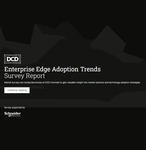FedEx has announced it plans to close all its data centers, retire its mainframes, and move to the cloud. Is it going to regret it?
The company's CIO FedEx Rob Carter was astonishingly bullish and upbeat on the announcement. Not only is he going to save the company $400 million per year with the so-called ‘zero data center, zero mainframe’ strategy - he is going to complete the move in the next two years.
People who've been watching the cloud will suspect FedEx may be making the wrong move, at the wrong time.
Work in progress
Carter says the cloud move is a nearly completed task: “We’ve been working across this decade to streamline and simplify our technology and systems. We’ve shifted to cloud...we’ve been eliminating monolithic applications one after the other...we’re moving to a zero data center, zero mainframe environment that’s more flexible, secure, and cost-effective.
“Within the next two years we’ll close the last few remaining data centers that we have, we’ll eliminate the final 20 percent of the mainframe footprint, and we’ll move the remaining applications to cloud-native structures that allow them to be flexibly deployed and used in the marketplace and business."
It fits the conventional wisdom. Cloud providers are expected to swallow up enterprise IT - a view that recently led Jim Chanos, the investment manager who successfully shorted Enron, to publicly bet heavily against the future of data center real estate investment trusts (REITs).
Chanos says the enterprise tech which is currently in the REITs' portfolio of colocation space will evaporate into the cloud, effectively making the REIT sector obsolete. Announcements like Carter's add fuel to that projection. See, everyone is moving to the cloud!
But this move to the cloud has been predicted off and on for many years.
Services like Salesforce started offering online versions of back office functionality before the millennium, making ASPs (application service providers) a significant part of the dotcom bubble. The idea that the cloud was inevitable took hold in the late 2000s. AWS presented as a one-stop-shop for enterprise computing, while VMware argued for keeping in an on-premise cloud
Cloud repatriation
In fact, right now, we are hearing a lot from companies which have realized that the cloud is not the whole answer. They are moving workloads back out of the cloud, in a movement known as “cloud repatriation” or the “cloud diaspora."
As Sarah Wang and Martin Casado at Andreessen Horowitz put it in May 2021, the cloud is a great thing for startups, early in their lifecycle. With it, you can get services up and running before the competition, and start winning customers. But as time goes by the cost of the cloud will become larger and more unpredictable than the cost of doing the work in-house, in an on-prem data center, or a colocation space.
"While cloud clearly delivers on its promise early on in a company’s journey, the pressure it puts on margins can start to outweigh the benefits, as a company scales and growth slows,” Wang and Casado say.
Put more simply: “You’re crazy if you don’t start in the cloud; you’re crazy if you stay on it.”
Essentially, early on, your service is new and you don't care about costs. You just want to get it in front of potential customers today. Later, when your market is mature, you are not competing for new customers. There are no really new customers to be found. You simply have to serve your existing customers more efficiently, while undercutting your rivals.
Cost and efficiency become much more important, and at this point, you realize that cloud costs are not well controlled. Assuming your company is above a certain size, your own IT systems can be more efficient and cost-effective than the cloud.
Wang and Casado reckon that most large companies can halve their IT costs by moving workloads out of the cloud. The top 50 public software companies operating in the cloud are losing $100 billion in potential market value by not doing so.
The most widely-publicized example of a company saving money by moving out of the cloud is Dropbox - whose Magic Pocket project essentially enabled it to make use of cheaper in-house storage for its services.
Is FedEx out of step?
It looks to me as if FedEx may be out of step. It opened its first on-premise data center in 2008, the web hype was already in full bloom. Now, just as we're hearing about cloud repatriation, it's committed to shoving everything into the cloud.
In the intervening years, it expanded its data center in 2011, bought land for further expansion, and signed a 10-year deal to use Switch's data centers for much of its IT. It's also committed to Edge data centers at distribution facilities.
At the same time, however, it has been buying cloud services from Oracle Cloud and Microsoft Azure, making it a classic hybrid IT user.
FedEx is very far from being a startup, so on Wang and Casado's analysis, it should be pulling IT back into its own estate and making it work better.
It's not offering new services, and I can't see how the cloud would fundamentally change FedEx. It's a real-world company, handling real-world items (parcels), so once they have the obvious wins of easier tracking and ordering, digitization can't change its services into something new.
Internet comment has been cynical, pointing out that handing all your IT to a third party is a massive hostage to fortune - and attributing Carter's big pronouncement to management fashion.
"Ultimately companies that abdicate their informatics operations like this will give their profits to their data-center operators, who will be empowered to charge them whatever price they want," warned a commentator on Hacker News. "Because what's their BATNA [best alternative to a negotiated agreement]? Migrating from Azure to AWS when Microsoft doesn't want to let them?"
Managers need to have a big project they can put their name on, and "moving to the cloud" is an ideal one because (depending on how you measure it) it's easy to show savings in the early years. As it gets into the long grass, it's still possible to argue it's working, but it becomes harder to justify in detail. By the time everyone agrees a change is needed, the model is so embedded it will be hard to make that change.
"Without a doubt, a future generation of executives will revisit and reverse the decision to rent all information infrastructure, but that will likely be many, many years down the road," says another Hacker News commenter. "In the meantime, the current generation of executives who made this decision will look very smart for saving the company lots of money for a good number of years. And they stand to benefit personally from it. They're doing the rational thing!"
For FedEx as a whole, a similar argument could make this look rational.
Remember when JPMorgan announced it wasn't moving to the cloud but was continuing to invest in in-house IT? CEO Jamie Dimon explained that spending $2 billion on in-house IT made sense, but the company was savaged by investment analysts.
With this announcement, FedEx is associating itself with a widely believed story of "progress."
It probably won't hurt the share price.






